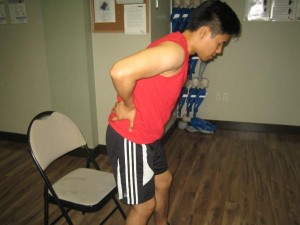When it comes to severe or incapacitating back pain, it is quite common among the adults. An individual can suffer from back pain at some point in their lives. As for incapacitating back pain, it is usually chronic and severe in which the individual could no longer carry out his/her normal activities whether at home or at work. Even though the cause of incapacitating back pain tends to vary from one individual to another, there are various treatment options that include exercise, medications, physical therapy and even surgery.
Causes of pain due to aging and diseases
Due to the normal aging process, osteoarthritis is the usual culprit for incapacitating back pain as the bone spurs develop and the deterioration of the disks between the vertebrae. It is important to note that osteoporosis is another prevalent cause of severe back pain with aging, especially among women.
Fibromyalgia can also trigger incapacitating back pain affecting the tendons, muscles and ligaments. Additionally, harsh back pain can also occur due to referred pain which is a type of pain that actually originates from another internal organ such as the lungs, kidneys or uterus.

Injury and exercise-related causes of pain
The usual cause of back pain is muscle sprain or strain. If the individual engages in strenuous exercise, heavy lifting and uncomfortable movement such as during a fall are all responsible for triggering muscle strain as well as ligament sprains. A disk that is herniated in which the covering of the disk has ruptured is another possible cause of incapacitating back pain due to exercise or injury.
Treatment options for incapacitating back pain
If the individual is suffering from incapacitating back pain, there are various treatment options available. You can learn how to provide these treatment options by enrolling in a first aid class today.
Pain medications
Non-steroidal anti-inflammatory drugs (NSAIDs) can help minimize the pain and inflammation linked with incapacitating back pain. If the individual does not respond to NSAIDs, he/she might be prescribed with opioid analgesics.
In case of muscle spasms due to an injury to the back, muscle relaxants are often prescribed. In some conditions in which the inflammation is the cause of the pain, corticosteroids are injected periodically to provide relief for the pain and inflammation. Additionally, if the incapacitating pain is not responsive to the first line of treatments, surgery is often the only solution.
Exercise and physical therapy
Exercise is considered as a treatment option for incapacitating back pain. This involves strengthening the muscles that are close to the spine since it provides a protective effect in order to prevent future pain. Due to this, exercises that help strengthen the core such as yoga is highly beneficial. Even physical therapy is also effective in dealing with incapacitating back pain. The individual should consult the doctor so that a personalized mode of treatment can provided based on their specific conditions.
